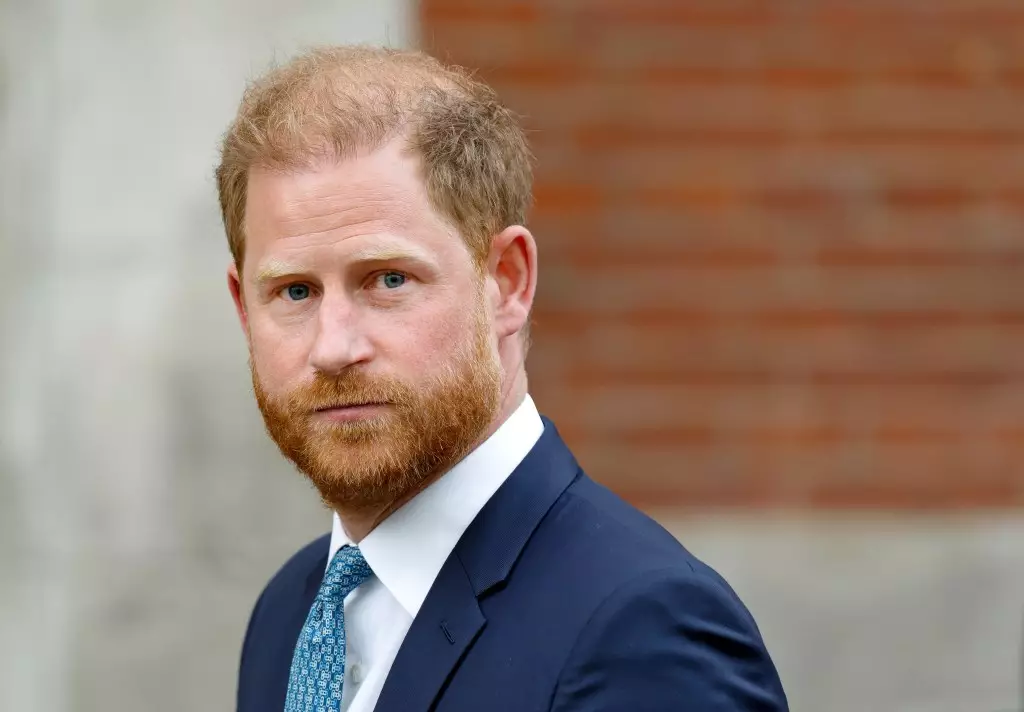In a world fixated on celebrity and legacy, few figures have sparked as much debate and division as Prince Harry. Just a week after a legal setback in the UK’s High Court regarding the financing of his security, the Duke of Sussex found himself at the center of yet another sensational story. This time, the narrative emerged from a curious incident involving the prince mistakenly knocking on doors in search of a friend. The optics surrounding his actions raise a multitude of questions about his current position not only within the royal family but also within the cultural zeitgeist.
The incident itself, documented by the ever-watchful media, casts a peculiar light on Harry’s state of mind. As he is reported to have knocked on multiple doors of townhouses that were some distance apart, one can’t help but wonder if this was a manifestation of the deeper chaos swirling in his life. The casual observer may interpret this as just another chapter in the ongoing saga of a royal trying to navigate life post-royalty; however, it signifies so much more. At its core, this event underscores a profound struggle with identity, security, and a sense of belonging—elements that have largely defined Harry’s life since stepping back from royal duties in 2020.
A Personal Cry for Security in an Uncertain World
During his recent BBC interview, Prince Harry conveyed a palpable sense of danger that his family feels while traveling to the UK. His assertion that he requires state-funded security transitioned the conversation from mere celebrity gossip to significant societal issues concerning safety and media intrusion. Harry’s circumstances illuminate the tension between public interest and personal safety. He openly stated that without proper protection, it is unsafe to bring his family back to their homeland. This admission raises an unsettling question: why do we, as a society, often prioritize sensational headlines over the real-life implications faced by individuals like Harry?
Indeed, Harry’s transformation from a prince to a proclaimed victim amplifies this discourse. It’s clear that he sees himself embroiled in what he describes as an “establishment stitch-up.” This characterization symbolizes not only his feeling of abandonment by the royal family but also his disconnection from the conventions that have governed his existence up to this point. In his own way, he’s becoming a modern-day David against a bureaucratic Goliath, fighting for what he perceives as fundamental rights for himself and his family.
Royal Conflicts: The Price of Privilege in the Public Eye
The clash between Prince Harry and the monarchy reveals a deep-seated dilemma: the ever-present tension of royal privilege against public scrutiny. Harry has frequently expressed disillusionment with the royal family’s protective framework, which he claims leaves him vulnerable. It’s not just about doors being knocked on but more about the psychological sanctuary that a royal lineage should afford its members. Our expectations of the royal family often collide with the realities of what it means to be individual human beings, subject to the same foibles and vulnerabilities as anyone else.
Furthermore, Harry’s grievances regarding King Charles’ lack of assistance and the dynamics of their relationship expose familial fractures exacerbated by their public roles. The fact that the king cannot provide assistance because of the conflict of interest posed by Harry’s lawsuit against the UK government portrays a poignant irony—one where family loyalty is being tested against institutional integrity. This irony opens the floodgates to discussions about the sometimes stark divide between familial bonds and institutional duties—the real-life consequences of a life played out under the relentless gaze of the media.
The Double-Edged Sword of Fame and Public Sentiment
Finally, Harry’s journey raises broader questions surrounding the nature of fame, particularly how it can be both a gift and a curse. In showcasing vulnerability, he humanizes the royal experience, but at the same time, he risks being caricaturized by the media, reducing him to mere fodder for tabloids. The endless cycle of scrutiny can strip away the humanity of public figures, leaving them isolated and under constant attack.
In a world where public personas are constructed as carefully as any royal decree, Harry’s struggles resonate deeply. They remind us that beyond the curated images and media narratives lives a man grappling with the consequences of decisions that seem to be both his own and dictated by the expectations of others. Whether he can regain a sense of security and identity remains to be seen, but his journey offers crucial insights into the complex interplay of privilege, vulnerability, and the quest for personal agency in an increasingly scrutinizing world.


Leave a Reply